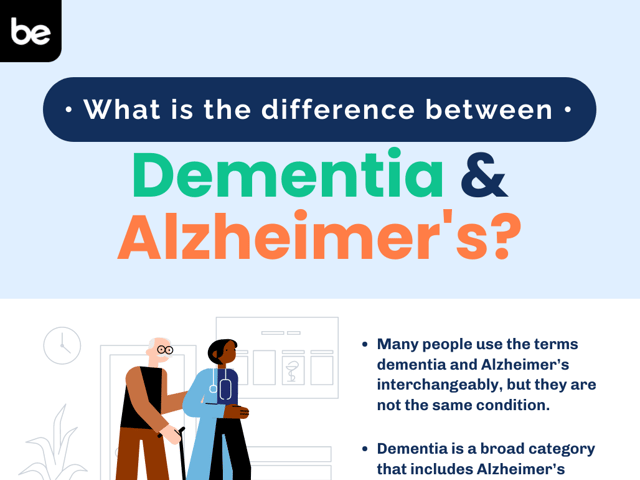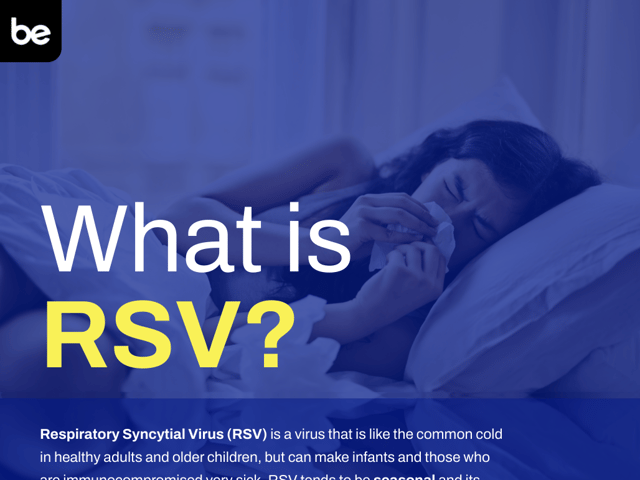
How to Become an LPN
Would you like to average $30 dollars per hour in a rewarding full-time career? A Licensed Practical Nurse (LPN) plays a critical role in the healthcare workforce.
LPNs are frontline workers responsible for the care of patients before they see a registered nurse (RN) or doctor. Families rely on LPNs to provide vital protection and comfort to their loved ones.
Nurses are in high demand due to current and projected nursing shortages. Along with career growth, LPNs also have many exciting nursing career advancement opportunities and pathways.
Are you ready to become an LPN? This guide goes over each step in the process, plus tips on how to make your application a cut above the rest!
Essential Steps to Becoming a Nurse
If you’re looking at jobs in nursing, there are a few steps to take before you can start:
-
Complete a higher-education nursing program
-
Take the NCLEX exam
-
Meet state and federal licensing requirements
Both LPN and RNs must complete an accredited nursing program with a qualified institution. LPNs aren’t required to have a 2-4 year degree to begin work in their field, however.
LPNs complete a faster and less expensive nursing certificate instead. These nursing programs take around a year to complete.
If you’re not ready to take on large amounts of student loans and eager to get started in your nursing career as quickly as possible, becoming an LPN may be one of the best career paths for you.
1. Choose an Accredited LPN Program
Your nursing program should be approved by your state’s licensing board. You can generally find this information on an official state website, or through your college.
The college nursing program should also be accredited. Degree mills are always waiting to trap unwary nursing career hopefuls. This can cause tricky issues for your nursing career path in the future.
It’s best to sidestep the unnecessary stress and verify state approval and official accreditation before signing up. Accreditation ensures nursing programs comply with state and federal standards.
There are two main organizations that evaluate nursing programs:
-
Accreditation Commission for Education in Nursing (ACEN)
-
Commission on Collegiate Nursing Education (CCNE)
ACEN offers accreditation to all nursing programs, regardless of level. They maintain a search database where you can look up nursing programs by location, name, or program type. You will most likely use this database for an LPN program.
CCNE only accredits nursing programs at certain levels. These include:
-
Baccalaureate programs
-
Graduate programs
-
Residency programs
CCNE maintains two directories to search for accredited programs. You can search either applicable database by state or program.
2. Complete Your Prerequisites
Nursing programs share similar requirements, but each college will have its own specific criteria for applicant selection. Choosing your LPN nursing program is the first step so you can find out exactly what goes into your program application.
General requirements can include:
-
High school diploma or equivalent
-
SAT/ACT scores
-
College transcripts
-
Letters of recommendation
-
Personal statements
-
Interviews
-
Criminal background checks
-
Drug screening
-
Current immunizations
-
Entrance exams/assessments
These requirements determine if your application is eligible for consideration.
Admissions also use a holistic evaluation of applicants to determine their program acceptance. There are many factors besides academic performance they must consider to determine if you have what it takes to become an LPN.
3. Make Your Application Stand Out
Competitive colleges have quotas where only a set number of top applicants are selected. Over 80,000 nursing program applicants were turned down in 2020. Some students are waitlisted for 2-3 years before acceptance.
Luckily, LPN programs have much shorter waiting lists. You can also reduce application rejection and waitlist risks by rising to the top of applicants.
Apply Early
Some programs require applications one year before the program starts. By applying early, you ensure you don’t miss important admissions deadlines at the last minute.
Complete Everything Ahead of Time
Nursing programs won’t be impressed or especially forgiving if your application is missing requirements. Make sure you complete everything well ahead of schedule, so you don’t have to wait another year or two because your high school transcript unexpectedly got hung up in the mail.
Focus on Your GPA
Some LPN programs require certain prerequisites to take their program courses. These can include basic level math, science, and English language classes.
If you need to complete high school classes, a high school equivalency exam, or certain college courses to apply, focus on getting an above-average GPA.
You may have heard the saying “C’s get degrees,” which is true. But C’s don’t get a competitive edge in program admissions, either.
Prep for Interviews
If your LPN process includes an interview, make sure you’re well prepared. Interviews are their own special skill set, from dressing appropriately to answering questions based on job research. Flubbing an interview can scuttle all the other good points on your application.
Write a Top-Notch Personal Statement
Some nursing school programs also require a personal statement. This is basically a persuasive essay on prompts like why you want to become an LPN, your nursing career goals, and/or why you think you’ll make a good candidate for nursing jobs.
Hone Your Communication Skills
Becoming a nurse means having clear, concise communication with patients, coworkers, and health records and reports. A lapse in communication can put your patients at risk. Your nursing program will expect you to have a certain level of English language proficiency. If reading, writing, and interpersonal speaking aren’t your academic strengths, make sure to get them up to speed first.
Community Service and Volunteering
Volunteering and service work generally aren’t a requirement, but they can give your application a boost other nursing career hopefuls may not have. If your application is similar to another highly qualified applicant, this could be the deciding factor in your selection.
4. Pass The Entrance Exam(s)
Another critical selection factor could be your entrance exam scores. These exams determine your fitness for nursing programs, so a high score shows you’re a nursing career candidate with high potential.
Common nursing school assessments include:
-
Test of Essential Academic Skills (TEAS)
-
Health Education Systems Inc. (HESI) Nursing Assessment
-
Psychological Services Bureau (PSB) Nursing Exam
-
Kaplan Nursing Admission Test (KNAT)
-
National League for Nursing Pre-Admission Exam (NLN PAX)
It’s central to your application success to find out which exam or exams you’ll take, as each test is formatted differently. Your study strategy will swing and miss if you study for the wrong test.
Test of Essential Academic Skills (TEAS)
The TEAS exam measures certain academic benchmarks. It has four sections:
-
Mathematics
-
Science
-
Reading
-
English and Language Usage
Colleges and universities will have different scoring requirements for TEAS. Some may only require a passing composite score, while others may also require a passing score for each section.
Health Education Systems Inc. (HESI) Nursing Assessment
The HESI exam format is more of a diagnostic assessment. It has 10 possible sections:
-
Anatomy and Physiology
-
Biology
-
Chemistry
-
Grammar
-
Mathematics
-
Reading comprehension
-
Vocabulary
-
Physics
-
Personality profile
-
Learning style
The HESI is more flexible with its exam format than other nursing assessments. You won’t have an accurate gauge of scoring requirements until you find out what sections your nursing program includes.
Psychological Services Bureau (PSB) Practical Nursing Exam
The PSB offers an aptitude exam for prospective nursing students. It consists of five main parts:
-
Academic Aptitude
-
Spelling
-
Information in the Natural Sciences
-
Judgment and Comprehension in Practical Nursing Situations
-
Vocational Adjustment Index
The PBS exam is also scored differently from other tests. You have a raw score based on the questions you get correct, and a percentile ranking that compares your performance to other test-takers.
Admissions will use these numbers to see if your abilities and skills match up with the ones needed for nursing program success.
Kaplan Nursing Admission Test (KNAT)
The KNAT is an academic achievement test similar to TEAS. It covers four basic subject areas:
-
Reading
-
Math
-
Writing
-
Science
Like TEAS, passing scores can be divided differently depending on the college. Some use the composite score, and some also include minimum section scores.
National League for Nursing Pre-Admission Exam (NLN PAX)
The NLN PAX is another standard achievement test. It only has three sections:
-
Verbal ability
-
Mathematics
-
Science
The exam has two scores: the composite score, and the percentile rank for each section. Like HESI, the PAX score requirements can vary greatly between nursing programs.
5. Complete Your Nursing School Program
Once you’re accepted into a Licensed Practical Nurse program, focus on completing your program with high marks. This will help your nursing career in several ways:
-
Boost your chances of passing the NCLEX exam
-
Create a favorable impression with your state nursing board
-
Add an extra resume perk when applying for nursing jobs
-
Help your success in future nursing programs
There are many tips and guides to help you pass nursing school programs above the bare minimum. Take advantage of them all!
6. Pass the NCLEX exam
The National Council Licensure Examination (NCLEX) exam is the basketball hoop of nursing career requirements: you must pass through it to score the actual goal. There are two exam versions:
-
NCLEX-PN (for Practical Nurses)
-
NCLEX-RN (for Registered Nurses)
As an LPN, you’ll be required to complete the NCLEX-PN exam. There are four test categories:
-
Safe and Effective Care Environment
-
Health Promotion and Maintenance
-
Psychosocial Integrity
-
Physiological Integrity
Unlike other entrance exams, NCLEX is not divided into sections. You’ll take one test with the questions mixed together.
Safe and Effective Care Environment
This testing area has two subsections:
-
Coordinated Care
-
Safety and Infection Control
Coordinated Care makes up the most amount of test questions (18%-24%). This section goes over the essentials of client care. It also includes your workplace tasks, duties, and structure.
Safety and Infection Control is 10%-16% of the test. This section tests you on the best practices for maintaining your client’s physical safety. It also covers minimizing the spread of infections in the workplace.
Health Promotion and Maintenance
Health Promotion and Maintenance is between 6%-12% of the exam. It tests your knowledge of health and development, disease prevention, and identifying high-risk client behaviors. It also goes over how to communicate with clients about their lifestyle choices.
Psychosocial Integrity
Psychosocial Integrity is around 9%-15% of the test. This section tests your abilities to recognize and respect client identities, including:
-
Cultural differences
-
Religious differences
-
Mental health and illnesses
-
Abuse and neglect
-
Addictions
It also covers support systems, empathetic communication, and crisis interventions.
Physiological Integrity
This testing area has four subsections:
-
Basic Care and Comfort
-
Pharmacological Therapies
-
Reduction of Risk Potential
-
Physiological Adaptation
Basic Care and Comfort will be around 7%-13% of the test. This section mainly covers your client’s physical and emotional care. It includes their mobility, hygiene, and pain management needs.
Pharmacological Therapies are 10%-16% of the test. This part goes over proper medication procedures, including dosage and administration. It also covers adverse side effects.
Reduction of Risk Potential will be 9-15% of the test. This includes steps to reduce risk in data and diagnostic testing. It also covers risks with client monitoring.
Physiological Adaptation makes up 7%-13% of the test. This area is very extensive. It covers any physiological changes that can occur in the client. It also goes over medical emergencies.
Scheduling the Exam
Once you’ve studied thoroughly and are ready to take the exam, the NCSBN maintains NCLEX test procedures. This includes what to expect before, during, and after testing.
You’ll have to start the whole scheduling process over again, for example, if you’re more than 30 minutes late for your scheduled exam. Don’t drop the ball this late in the game!
7. Become an LPN
Now that you’ve completed your nursing school program and passed the NCLEX exam, you’re ready to start searching for nursing jobs. Your college or university can also provide job-seeking resources and programs.
There are tips for writing an essential LPN resume. Your potential employer may have additional criteria.
Don’t forget to build a professional network while you’re completing your nursing program. Referrals and letters of recommendation are great perks for entry-level LPN careers.
8. Keep Pursuing Higher Education
Your LPN career offers many exciting pathways. You can work in:
-
Hospitals
-
Hospices
-
Schools and colleges
-
Government agencies
-
Nursing homes
-
Home health agencies
-
Physicians’ offices and clinics
-
Forensics
-
Occupational health
-
Correctional facilities
You can even become a traveling LPN. Make sure you get a multi-state license if you have the option.
You can also complete higher-education programs and become an RN or a Physician Assistant (PA). Some LPNs even go for their doctorate. You’ll have the practical nursing experience to know which career path is right for you.
No More Delays: Start the Nursing Career of Your Dreams Today!
Becoming an LPN is a great way to begin your nursing career. You can choose from several exciting LPN career pathways, or use your experience to jumpstart your future degree programs in other nursing fields.
Do you want to master the entrance exams and NCLEX-PN? We offer premium study resources at college student prices: free! Get started with a no-frills, no-strings account today.
Keep Reading

National Council Licensure Examination-Practical Nurse Blog
How Long Should I Study for the NCLEX-PN?
For aspiring nurses, the NCLEX-PN is a critical hurdle on the path to b…

National Council Licensure Examination-Practical Nurse Blog
What Is the Difference between Dementia and Alzheimer’s?
Many people use the terms dementia and Alzheimer’s interchangeably, but…

National Council Licensure Examination-Practical Nurse Blog
What is RSV?
Respiratory Syncytial Virus (RSV) is a virus that is like the common co…